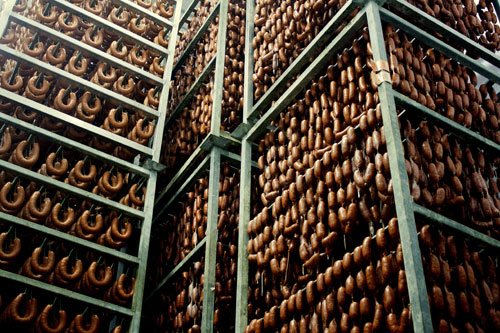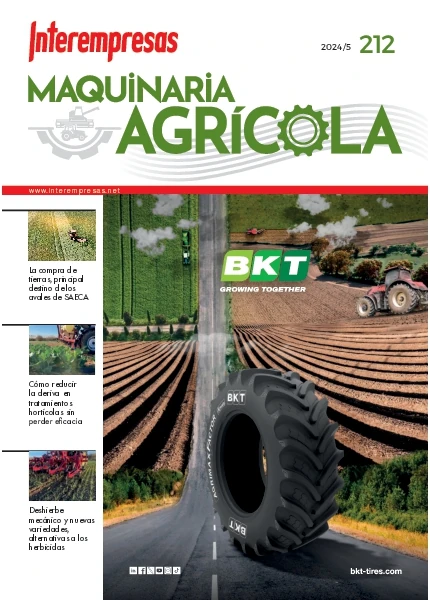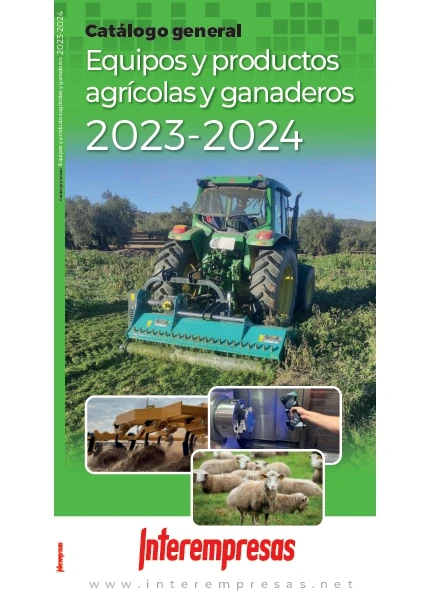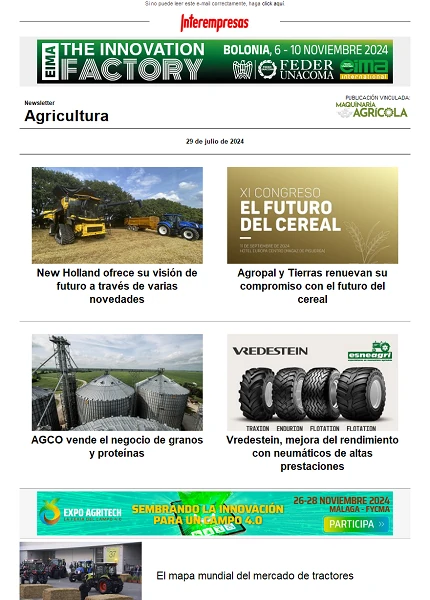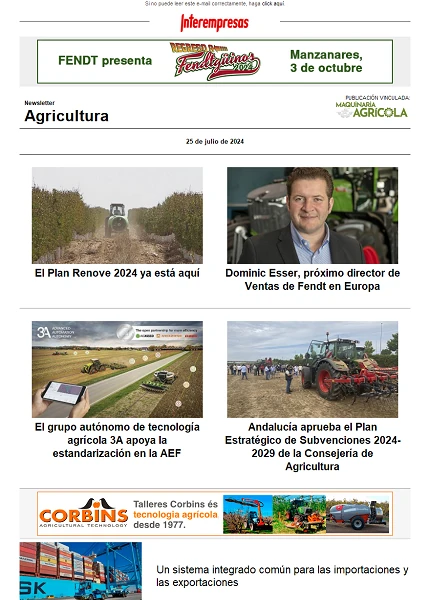The meat sector, horse of social changes
on April 11, 2011
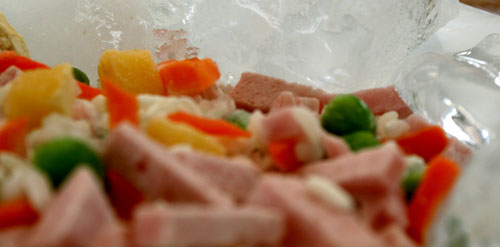
“The current society sues more rapidity, comfort, health, commitment… and all this has his reflection in the form in that they consume the foods. It devotes less time to the purchase and besides this last carries out of way more spaced. Also it devotes less time to the kitchen and loans special attention to the nutritional properties of the foods and his implications in matter of sustainability”. To trial of Emilio Saint Martín, technician of the Technological Centre of the Meat Sector of the Rioja (CTIC) -that collaborates with the Centre of Innovation and Alimentary Technology of the Rioja (APPOINTMENT)-, these social changes have conditioned to the sector cárnico that, until the last 20 years moved exclusively by factors like the price or the income. Changes that have forced to the manufacturers to readjust his wallet of manufactured, offering elaborated in tuning with these preferences, presented in individual containers. “Before you bought the pieces and cut them you same, home. Now, the majority arrive to the market in slices and packagings to the empty. The type of container also has changed, and bets by the small and individual formats. It packs the quantity of necessary food for afterwards plant it on the bocadillo directly, without having to explain the slices”, argues Ignasi Pons, manager of the technical department of the Catalan Federation of Industries of the meat (FECIC), that represents to 70% of the pork of the country. By his part, from the CTIC, Emilio Saint Martín adds: “they are imposing products with more useful life, comfortable to buy (packagings), fast to cook and with a plus of health or of ecology”. It cost an example in this regard. The company Laidiez Feeding has launched a new range of Iberian product loncheado and certificate, presented in a tray developed by the company of Ribafrecha (The Rioja) that keeps the product as recently cut. The new launching is the result of the investigation that develops from the year 2008 and that has given place to a design patented of tray for the stuffing with the project of R&D 'New technology of loncheado and packaging of products cárnicos cured', realizar in collaboration with the centres CTIC and APPOINTMENT.
From the technical point of view, the design of this tray supposes a challenge for the industry when avoiding alterations in the product and prolong his useful life, with the maximum guarantees of quality and salubridad. Besides, in these products is important to attain that the plates separate with ease, what achieves with said tray. The collaboration between the company and the technological centre has revertido in the application of the results of the investigation to the launching of new lines of commercialisation by part of the company. After the conclusion of the project and the patent of the new tray, Laidiez Feeding and the centres CTIC and APPOINTMENT proposed continue with the development of the technology for products cárnicos loncheados through new materials of packaging, development of new products and utilisation of materials of low environingingmental impact. The new range of products, designated Ladiez Iberian, is composed by Iberian ham of acorn, Iberian palette of acorn, Iberian ham of bait, Iberian palette of bait, Iberian chorizo of acorn and salchichón Iberian of acorn. With the new range of loncheados Iberian certificates puts to disposal of the consumer the products more selectos of the delicatessen in practical trays, guaranteeing the maximum quality and freshness.
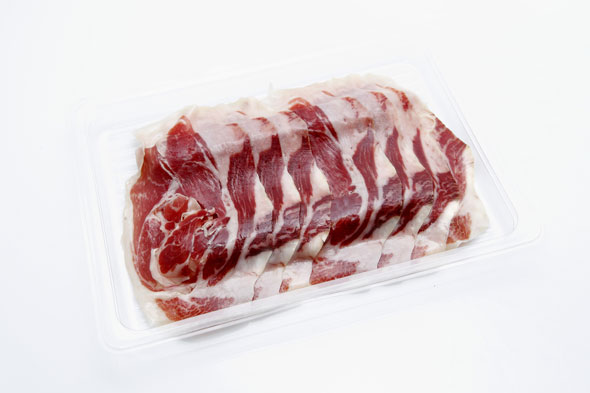
Synthesis, shows a "significant discrimination" on the type of product and its presentation. "The sliced products, the packaging - continues - with longer service life and, ultimately, those products that presented an added value of comfort or ease, are displacing more traditional presentations." "For example, much of consumers prefer to buy a tray of chicken breasts and fileteadas, whose useful life exceeds the week, rather than buying a whole chicken and having to chop it and cook it in a short period of time." According to the spokesman of the CTIC, these new consumer trends have been imposed in general throughout the country, although between the different autonomous communities exist based differences, mainly in shades of choice linked to the gastronomic tradition of each place.
Reduce salt and fat, the great challenge of the meat sector
At the same time which has decreased the frequency of purchase of meat, which has led to a decline in trade retail and on the other hand, the rise of the larger publishers, must take into account a crucial aspect: more supply and less demand. The sector has been forced to become more competitive and producers must do to add a certain differentiation in each prepared for and position it on the market. Given this scenario, charged major innovation and product improvement. "And that's where technology centres play an important role as a tool in the service of companies", is the head of the La Rioja technology centre. The collaboration with these centres, which are also betting from the FECIC, is vital to discover consumer trends that determine the success or failure of the products, in this case, meat. The produced fatty or with less healthy image have lost sales, as well as the meat pieces that require greater effort for its cooked. "On the opposite side, less fat and easy-to-cook meat have increased their presence," they claim from the CTIC. With regard to the type of meat is consumed more, from the Catalan Federation of the industries of the meat, make reference to the poultry and pigs, while the less consumed would be the meat of cattle and sheep.
In any case, the big challenge to the that has to face up the sector and in which it already works from does time, is the demand of products with low content in fats and also in salt. And it is that the own palate of the consumer is habituando to eat with less fat and salt, what forces to the manufacturers to advance in this line before his productions leave to have acceptance, as it explains the manager of the CTIC. “The most evident example is the one of the ham cured. Nowadays, They are refusing , by excess of salt, some hams that 20 years ago had considered normal”. In any case, the task to diminish salt and fat in the products cárnicos is not a simple challenge: “The fat plays a notable paper in the texture, palatabilidad and flavour of the product and the salt has a necessary conservative effect and difficult to substitute”, reasons Emilio Saint Martín. From the FECIC, Ignasi Pons corroborates the difficult that is, for the sector cárnico, this purpose. “All the changes that do , especially with the subject of the salt, can feed the perception in the user that it has changed the product. Besides, the salt plays a no alone paper organoléptico but also of alimentary hygiene in the product. It has to have a balance”.
Splitting of the idea that so much the salt like the fat are ingredients with technological function, the strategies of elimination or replacement do not result at all evident and “require of an effort remarkable researcher”. “It occurs, even, that some of the solutions to attain this reduction consider artificial and refused. Definitely, diminish salt and fat is the current challenge for the sector”, ensure from the CTIC.
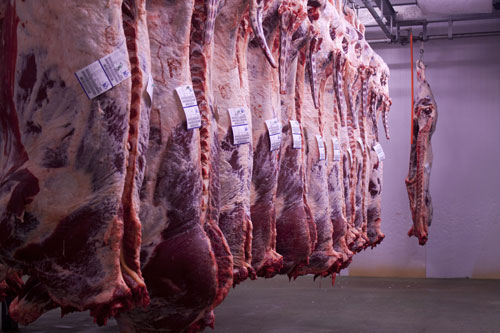
The sector cárnico Catalan works in the improvement of the nutritional profiles of his products
The past 14 April, the Catalan Federation of Industries of the Meat (FECIC) organised the II Day on reduction of the salt and fat to the products cárnicos, so that professionals of the technical sector advised and informed to the companies on rule to fulfil and processes to be followed to diminish the content of the salt and fat in his products. In this regard, Napoleon Pérez, boss of the Service of Evaluation and Follow-up of the Vocalía Adviser of Strategy NAOS of the Unit of Support of the Executive Steering of AESAN, exposed the approach of the Spanish Agency of Alimentary hygiene and Nutrition (AESAN), that insists, following his Plan of Reduction of Salt, in that the alimentary sectors engage to reduce the content of this in his products. By his part, from CLITRAVI, the European association of industries of the meat, Enrico Frabetti, attach to the General Office, disertó on appearances related with the nutritional questions (related with the salt and the fat) with which is working the European Commission and on some of the legislative initiatives and no legislative that llevar in different European countries on this subject. Likewise, Montse Prieto, director of the department of Alimentary Right of the Spanish Federation of Industries of Feeding and Drunk (FIAB), tackled cómose faces this question from other alimentary sectors and did an analysis of the actions that from the FIAB are llevar to fulfil with this initiative of reduction of content of salt of the products proposed by the AESAN. Finally, the chair of Nutrition and Bromatología of the Faculty of Pharmacy of the University of Barcelona, Abel Mariné, exposed the importance for the nutrition and the alimentary hygiene of the use of the sodium and of how can affect his reduction and the utilisation of an alternative substance. In the day also took place a round table, moderated by Jacint Arnau, boss of the Unit of Technology of Processes of the Institute of Investigation and Technology Agroalimentarias (IRTA), where different companies explained the solutions that can contribute to achieve these new products and that concluded with a cata of products elaborated under these new nutritional profiles. The meeting, to the that assisted some 80 representatives of different companies cárnicas, freamers inside the actions of social responsibility of the Sectorial Plan 2010-2014 of the FECIC.
Immigration as a new market niche
With the arrival of new immigrants to the country, have also come new needs of consumption: those who discarded-based pork products. The emergence of these groups is an opportunity which has not gone unnoticed for a sector such as the meat. "Many meat industries - explains the spokesperson of the La Rioja technology centre-" they have the Halal certification and manufacturing specific products for this population. "In addition, some companies working in the design of innovative meat products depart from the approach of not using pork so that it does not involve a limit when it comes to reach all sectors of the population". The meat industry because it makes their eyes to these groups to thus expand market and more, if it is considering the fact that the consumption of pigmeat, is saturated. So, explain from the FECIC, where he carried out a project whose cost is estimated between 2 and 3 million euros, to develop products not swine meat, especially beef and sheep. "We have detected that there is a group that does not consume meat pork, due to religious issues or otherwise." This happens not only here, but also in other countries. "The project we develop would serve to market these products within the European Union, but also in third countries," says Pons. An initiative in addition to the companies associated with the FECIC, involving technology as the IRTA and a consulting centres to locate who and where are these potential customers.
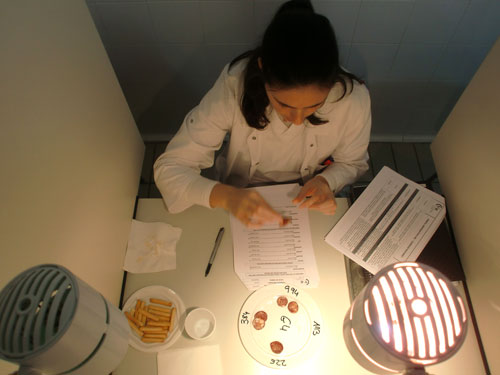
In the field of consumption habits and preferences, from the FECIC they are very clear that the future of the sector is in the prepared dishes and in what they call "4th range", similarly to what happens in the horticultural sector. In addition, since the Federation has led a joint project of r & d, which had been joined by some thirty Catalan meat companies, whose aim is to achieve cured sausages matured in the traditional way to adapt to new consumer habits, towards less dry products containing low salt, sliced and packaged and that meet standards of quality and food safety. With a funding of EUR 2 million, granted by the Centre for Industrial technological development (CDTI), the Embumad project will also include the involvement of the unity of technology and Research Institute of food safety and food technology (IRTA) of Monells (Girona)which will be carried out throughout the research process. For its part, and in the field of the raw and cured meats, from the CTIC they insist that the possibilities for innovation are "very limited", as is traditional, deeply embedded products. "However is being carried out numerous actions that seek to make the product more attractive and adjust it to the real demands of the society." "The incorporation of new ingredients or the reduction of salt and fat are present, with a view to banish the concept of little healthy". Also, refer to the efforts being made to ensure that the presentation of these sausages adapts to new consumption habits. "This is common to find sausage sliced, in individual portions, in aperitif format, etc." Today almost nobody buys a whole Ham with bone and pata… "."
